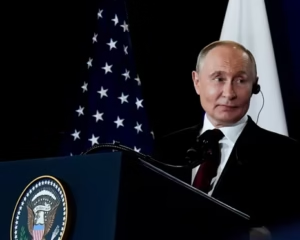Obuasi Massacre: George Quaye Expresses Shock and Sorrow

Ghanaian playwright George Quaye has strongly expressed his concern over the tragic events that occurred in Obuasi, calling for immediate and constructive action to address the root causes of the violence. On Sunday, January 19, 2025, the town of Obuasi, one of Ghana’s most prominent mining communities in the Ashanti Region, became the site of a violent confrontation between personnel of the Ghana Armed Forces and local youth. This violent clash reportedly began when a group of small-scale miners allegedly invaded the premises of AngloGold Ashanti’s mining operations, leading to an exchange of gunfire between the two groups. The tragic outcome was the loss of seven lives, leaving the nation in shock and raising important questions about security and governance in mining communities.
The incident, which has sparked outrage and deep reflection across Ghana, has drawn attention from various public figures, with George Quaye among the most vocal in calling for urgent discussions on how to address the growing issue of illegal mining and encroachment on mining sites. In a Facebook post on January 21, 2025, Quaye expressed his heartbreak and concern over the disturbing images from Obuasi. He emphasized the importance of addressing this issue head-on and suggested that it was time for a national conversation about the rising sense of entitlement some locals feel towards mining sites, which may lead to illegal activities and violent confrontations.
Quaye raised critical questions regarding the adequacy of current security measures in place to protect both the lives of the citizens and the large-scale investments in the mining sector. “The images from Obuasi are both alarming and heartbreaking,” Quaye wrote. He called for a deeper, more objective conversation about whether local communities, in their increasing frustrations, feel entitled to illegally encroach on mining areas. He referenced similar situations in other regions of the country, such as ongoing conflicts at the Electrochem site in Ada, suggesting that the situation in Obuasi was not an isolated case but rather part of a broader, national issue.
Furthermore, Quaye questioned whether the Ghanaian government should consider increasing security for the mining operations or whether it would be more effective for mining companies to take charge of their own security arrangements. He expressed concerns about the potential consequences of allowing mining companies to act independently in securing their premises, asking, “Will that end well?” His words reflect the complexity of the issue, as he weighed the possible benefits and dangers of either approach.
In addition to addressing security concerns, Quaye also highlighted the importance of local leadership in preventing such violent incidents. He pointed out that, if left unresolved, the issues surrounding illegal mining and encroachment could have serious implications for the country’s stability and development. For Quaye, the Obuasi incident serves as a wake-up call for both local leaders and the central government to take proactive steps to address the underlying causes of these conflicts. Without the involvement of local authorities, the risks of further unrest, violence, and instability would only increase.
Quaye’s post also reflects the importance of having a balanced and coordinated approach to tackling the challenges associated with illegal mining. He emphasized that the matter is not simply about securing the mining sites but also about understanding the socio-economic factors that drive locals to take matters into their own hands. Many small-scale miners, Quaye suggested, might be acting out of desperation due to the lack of alternative livelihoods and economic opportunities in their communities.
George Quaye’s reaction to the Obuasi massacre is a call to action for the government, the mining sector, and local leaders to work together in finding solutions that can ensure the safety of citizens while protecting the vital mining industry. His reflection on the need for a national conversation about illegal mining, security, and governance underscores the urgency of addressing these challenges in a way that fosters peace, economic development, and mutual understanding. The situation in Obuasi is not just an isolated incident; it is a reminder of the deeper issues facing many mining communities in Ghana, and the need for thoughtful, collaborative solutions to prevent further bloodshed and division.







